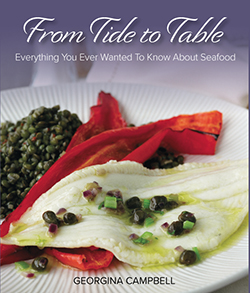The Secret Ingredients in Our Food

On the warpath once again in the fight for better food, Seanad candidate and food writer Ross Golden-Bannon explores the tricks that the processed food sector gets up to, to make additives sound “as homely as godmother from Wanderly Wagon”!
Most people spend just a few seconds reading food labels. It says ‘natural’, right? A quick look at the back, no ‘E numbers’? Perfect. Pop it in the basket. But if you’re the sort of person who forensically examines food labels you’ll know there are new ways of describing additives that make them sound as homely as godmother from Wanderly Wagon.
But did you also know there’s a raft of ingredients which mass food manufacturers are not even obliged to name on the label? The processed food sector is a billion dollar industry and they are intent on protecting those profits regardless of the costs to our nation’s health, real food producers or indeed simple honesty.
E’s are scary
Those few seconds you spent glancing at the label to reassure yourself that all is well are the result of millions of euros’ worth of lobbying in Brussels. Customers’ fears over the dreaded ‘E number’ on labels drove the sector to reform labelling without actually changing their practices and it looks like it may have worked.
There are two simple sleights of hand they use, one reclassifies ingredients in less frightening sounding terms like ‘functional starch’, often shortened to ‘starch’.
The other sleight of hand is more sinister: the sector has lobbied hard to have a wide array of chemicals reclassified as being part of the process or as a ‘processing aid’ and therefore not ingredients. So, the chemicals don’t appear on the label at all.
You’ve also probably noticed the disappearance of many ‘E’ numbers from your food labels. This seems like a good thing, but again this a combination of rebranding, heavy lobbying and compliant EU food regulators.
Our perceptions are being managed by big food business spin-doctors. It’s called ‘premiumisation’, the legal labelling of food with words such as ‘natural’ and ‘craft’ to make us believe we are buying wholesome products that just happened to be shrink-wrapped.
New alternatives have been formulated to persuade us that all is well behind the label. Some firms happily found natural replacements others just looked at their bottom line and got more imaginative.
There are three major additives which manufacturers needed to replace. Hydrocolloids, which make your food taste creamy; modified starch acetylated distarch adipate (E1422), formulated to maintain moisture as well as the extreme temperatures of the industrial process. And finally gelatine, magically created by boiling skins and bones of pigs and cows. Texturisers are also used to give desserts and other dishes that distinctive creamy, melting texture.
Unnatural flavours
They’re all chemically altered starches designed to survive the rigours of industrial scale food manufacturing and long shelf lives. In many cases these additives have now been replaced by similar, highly processed starches which can be classed as ‘functional native starch,’ often just shortened to ‘starch’. Not scary at all.
The enzyme transglutaminase is used to help reformed meat retain more water, that’s meat scraps to you and me. A handy little chemical if you are at the bottom end of the deli meat market and trying to keep your costs down. Transglutaminase is deemed a processing aid. So it never appears on the label.
Artisan labelling
Meanwhile the likes of artisan producers are in the ha’penny place. Many of the words they use with integrity are blithely woven into deceiving labels of mass-produced food. At present there are no laws in Ireland to protect the following terms: ‘artisan, artisanal, farmhouse, traditional, natural or craft.’
However, guidelines were issues in 2015 by the Food Safety Authority (FSA) to cover ‘artisan, artisanal, farmhouse, traditional, natural’ but excluding ‘craft’. A short while later, in September 2015, McDonald’s Ireland launched the McMór burger describing it as ‘artisan’. It was later renamed but they were not legally obliged to. There are plenty of other, less high profile food producers out there using this term. It’s a word you will see more often now on products and drinks that are really more crafty than crafted.
This all has to change. Lists of ingredients should be exactly what they say: a real list of what the product contains. Labelling in Ireland needs to be transparent and easily-readable so consumers can make real choices about what they are buying. Guidelines are only guidelines and big food businesses can afford to ignore them. Labelling legislation needs to be legally binding and fully enforceable.
Can we change this? Of course we can. Sugar and salt have found themselves in the cross-hairs in recent years and a combination of legislation and consumer power is changing sugar and salt content in our food. Let’s do the same for unnamed chemicals too.
Ross Golden-Bannon is a member of the Irish Food Writers’ Guild and is standing as an Independent candidate for Seanad Éireann for the NUI Panel. Follow him on Twitter at @goldenshots. [This piece was written by Ross in a private capacity and first appeared in thejournal.ie]






There are currently no comments
Leave a comment
Not a member? Register for your free membership now!
Or leave a comment by logging in with: